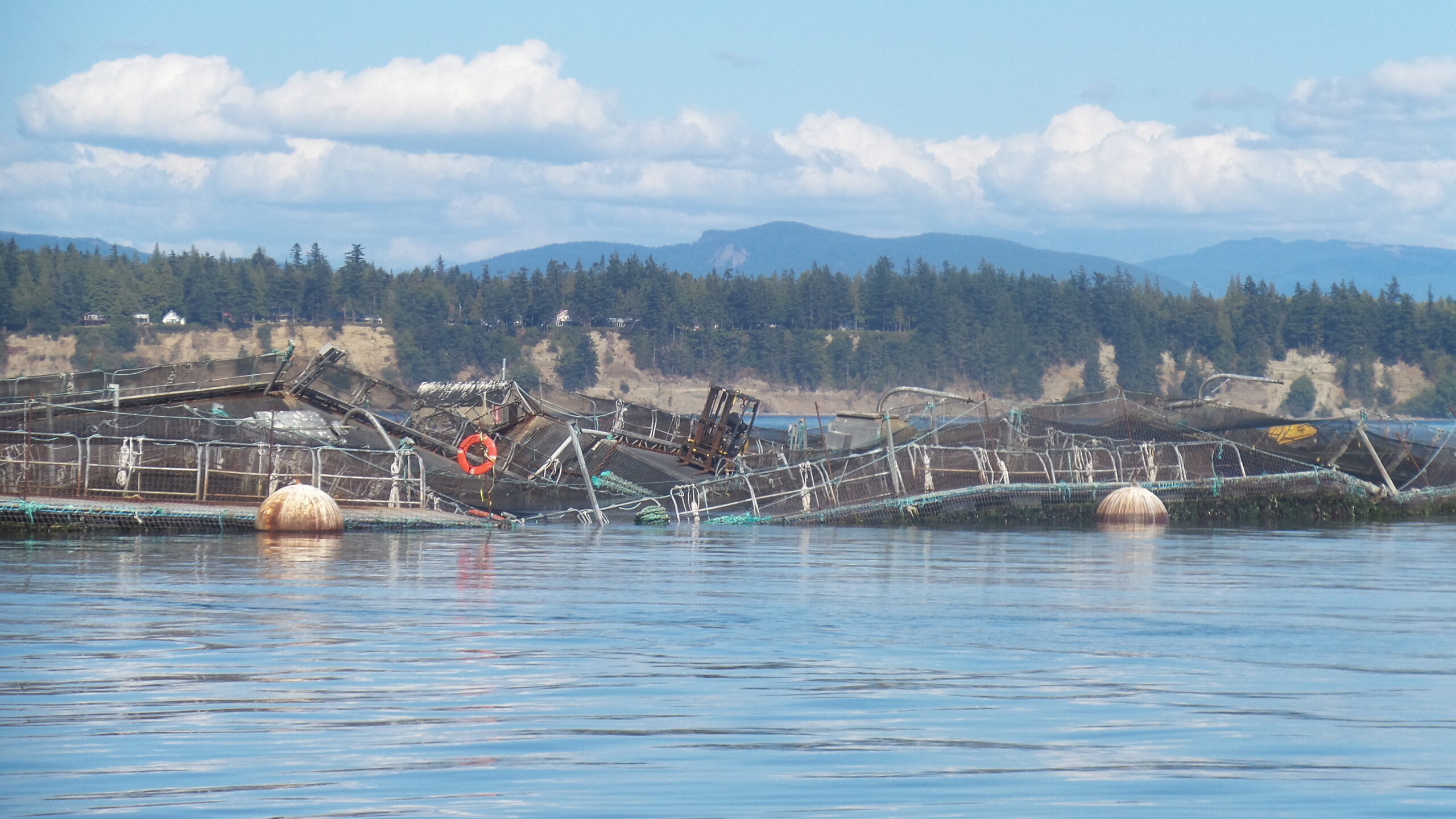Residents of Washington’s Olympic Peninsula have been closely monitoring developments stemming from the the escape of possibly more than 160,000 non-native Atlantic salmon from an industrial fish farm near Cypress Island.

Here is my take on this issue.
Some background: In 1972, Congress enacted the Coastal Zone Management Act, (CZMA). Each coastal state was asked to develop a coastal management plan. One of the features of the Act used to lure states into the program was the federal consistency clause, section 307. It requires federal actions that affect a state’s coastal zone to conform to a state’s coastal management plan.
In 1980, the Department of Interior proposed a sale of oil and gas leases in the outer continental shelf off California’s coast. California fought this sale on grounds that it violated section 307. A divided U.S. Supreme Court eventually ruled in favor of the Department of Interior, reversing two lower federal courts.
More than a decade later, Congress amended section 307 in response to this Supreme Court ruling, to clarify and affirm coastal states’ consistency rights.
The National Oceanic and Atmospheric Administration (NOAA) has shown interest in the possibility of eventually expanding aquaculture further away from the coast, meaning the waters in the Exclusive Economic Zone (EEZ) between three and two hundred miles offshore.
The intent is to reverse a seafood trade imbalance. Federal policymakers are looking to expand aquaculture and grow the industry in the United States.
Due to Alaska’s strong stance against the industry and the fact that the Alaska Coastal Management Act disallows fish farms, Alaska is likely to use section 307 to ban and oppose any effort of the federal government to open its waters to the kind of commercial farming activity that has been allowed down south.
Washington State’s stance has been weaker. Three counties adopted shoreline management plans that disallowed or made placement of fish farms in their waters problematic. These plans help make up Washington’s coastal management plan.
The Washington Department of Ecology, pressured by federal policymakers, recently made these three counties (of which Jefferson is one) write new Shoreline Management Plans that allowed for the placement of fish farms in their waters.
People in Jefferson County responded with protests and petitions, and the county commissioners worked with Kevin Van De Wege (then a state representative, now a state senator) to introduce legislation to allow counties to ban net pen aquaculture. (That legislation, HB 1599, received a hearing but unfortunately did not advance.)
Then-County Commissioner Phil Johnson, a former commercial salmon fisher who has adamantly opposed in-water fish farming, hailed the bill “as a step in the right direction”. And I’d like to add: What good is section 307 if the federal government is influencing what our Coastal Management Plan allows or doesn’t allow?
There are many threats from industrial fish farms.
One is the real possibility of spreading viruses from farmed Atlantic salmon to native salmon, threatening their survival and sustainability.
Piscine reovirus was first identified in Norway. It results in heart and muscle inflammation causing lethargy. In wild salmon it could impact their ability to escape predators. It has been found in wild salmon of British Columbia.
Infectious salmon anemia is very contagious and deadly, likely has a European origin, and if detected in any farm, total eradication is required.
Hematopoietic necrosis (PDF), meanwhile, can be one hundred percent mortal to fry and adults that survive become carriers.
Another problem is that wild smolts migrate pass fish farms on their way to sea and many are infected with sea lice, which weakens them and reduces their survival rates.
Fish farms also have adverse impacts on herring and other forage fish populations as they are attracted to fish farms. There are tons of pollutants from the farms themselves that settle underneath. Farmed salmon often escape, sometimes in large numbers, as we just saw this past month.
Atlantic salmon prey on the same food as wild salmon and are suspected of preying on young wild salmon smolt if the escapement occurs during their migration to sea. There is also the fear they may spawn and propagate.
Of the two places in the world where fish farms have been located in waters shared with native salmon, the native salmon populations plunged and commercial fisheries dependent on them have been hit hard (Norway and British Columbia).
Commercial fish farms have no place in Washington’s marine environment or rivers.
Land based facilities with no connection to a river show promise as an alternative.
If we continue in the direction we are headed, with the waters of the Pacific simply considered another resource in need of exploitation, I fear for the future of our native fisheries. NPI believes that we must act as a state to protect our salmon and our heritage from further destruction. We need more than a moratorium on fish farms in our waters: we need to follow Alaska’s example and institute a total ban.


Thank you for taking up this cause.
We got involved in it about thirty yeas ago thru the Oak Bay Coalition and the Marine Environmental Consortium which stretched from the south Puget Sound north thru BC waters. We were, and still are, fighting BIG European interests which had the foresight, money and lobbyists to get lwas and policies in place favoring this horrible industry.
The chickens (in this case Atlantic cage grown salmon) have come home to roost)!
Hopefully, our legislature and the federal government will now put a stop to this
industry in my lifetime.
dw